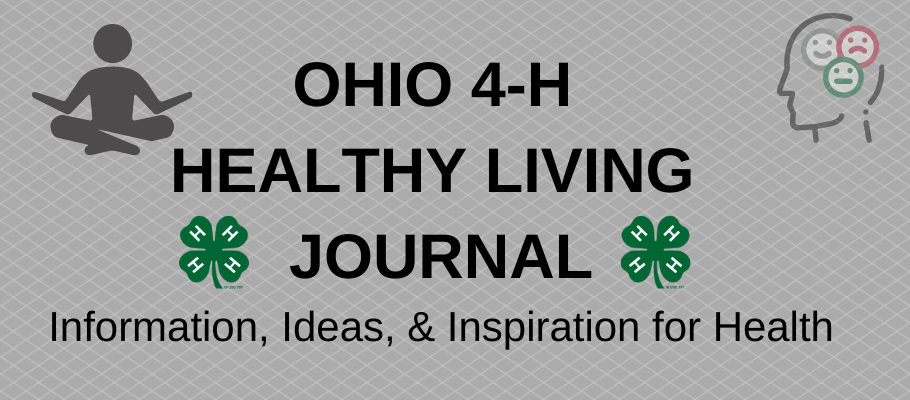
by Tyler Kessler, 4-H Educator, Adventure Central
This year marks the 30th anniversary of our recognizing April as Stress Awareness Month. Stress is part of daily life, but even hearing the word stress tends to bring negative or gloomy thoughts to mind. Is stress always bad? Researchers suggest that stress can be toxic or healthy depending on our mindset. Some studies also suggest that the chemicals released by the body when we are stressed might actually be beneficial to our health. Feelings of mild to moderate stress can also bring increased motivation, better decision-making, and overall healthier living! This type of stress motivates us to be thoughtful and prepared – for example, to wake up on time for our interview or to study for a big exam.
On the other hand, when we do not acknowledge unhealthy stress, it can become toxic and debilitating. This can lead to fear and anxiety about the future and other parts of life we cannot control. Toxic stress can keep us from enjoying life, feeling confident, and accomplishing daily tasks. It also leaves us feeling stuck and alone in our struggles, which can lead to other mental health struggles. Fortunately, research tells us that though we tend to paint a negative picture of stress, in fact the simple practice of mindfulness might be the key to rethinking negativity surrounding stress and unlocking stress as a tool for success.
Techniques are available to help us build new habits, to help us recognize and manage new stressors, and to help us rethink our stress mindsets daily so that we can begin to see traditionally stressful challenges as opportunities for growth. Our friends at the University of Delaware have provided tips for approaching mindful stress management that might also start us on the path to our own new stress mindset. Let’s take a look:
- Time Blocking – Time management and stress tend to be related but being mindful of our schedules can help eliminate toxic stress. Intentionally dividing our days into individual blocks of time for tasks not only help us complete activities in our schedules, but it also helps us to avoid negative stress and feel present in each moment. Look at your schedules today and even consider setting up a Google calendar account to help you unlock new potential within your schedule! Set aside time for breaks and resets first, prioritize your tasks to manage stress, and give yourself grace if plans change.
- Beware Distractions – Sometimes it is good to distract ourselves to reset and refocus on important tasks; however, if we are not mindful, distractions can lead to procrastination, loss of motivation, lack of sleep, and even deep feelings of anxiety and worry. So put your phone on ‘do not disturb’ to help you stay focused on homework, set up a wind down schedule before bedtime, and let friends and family know when you are working on an important project to get support toward your goals.
- Just Breathe – So much can be shared about the power of simply taking a minute to breathe throughout the day. Shallow breathing can often accompany intense, even joyful, situations. However, when our cells lack appropriate levels of oxygen our bodies simply cannot function, and we often do not even realize it. No matter how you decide to practice mindful breathing, just make sure you take a moment to reset.
- Mind Shifting – Sometimes rethinking stress simply requires shifting our mindset. As human beings, we can choose how we think about a challenge to make it feel more manageable. For example, instead of saying, “This project is too hard, and I cannot do it,” we can shift our mindset and say, “I can break this project into small parts, and get it done one step at a time.” This stressful project suddenly becomes a positive opportunity to grow with a simple change in mindset.
- Guided Candle Meditation – Consider using candles when you meditate to improve sleep, alleviate racing thoughts, and to increase overall concentration. When you focus on one object like the flame of a candle, muscles in your eyes contract less, your heart rate tends to slow, and it becomes easier to relax. Give it a try the next time you decide to do some calming meditation!
These are excellent techniques to use day-to-day, even right at this moment, to unplug your central nervous system and refocus your thoughts and feelings on the present moment. If we take time to rethink stress on a regular basis, we open ourselves to understand that stress alone will not hurt us. We have the power to change our mindsets at any moment, through mindful practices like those shared here. With a little redirection of thought, we might even find that our stress can lead to lasting growth.
We know that it can be tough to talk about stress, especially because we can fall into the habit of thinking all stress to be negative. Check out the attached Grab & Go activity – Snowball Stress Toss – to provide space for processing stress and other emotions during meetings and events! Also, be sure to check out Stanford University’s Mind & Body Lab for more activities and information about how to support positive mental health!
References
Crum, A., & Lyddy, C. (2014). De-stressing stress: The power of mindsets and the art of stressing mindfully. In A. le, C. T. Ngnoumen, & E. J. Langer (Eds.), The Wiley Blackwell handbook of mindfulness (pp. 948–963). Wiley Blackwell. https://doi.org/10.1002/9781118294895.ch49
University of Delaware Student Wellness & Health Promotion. (2022). Stress management. https://sites.udel.edu/studentwellness/project/stress-management/
